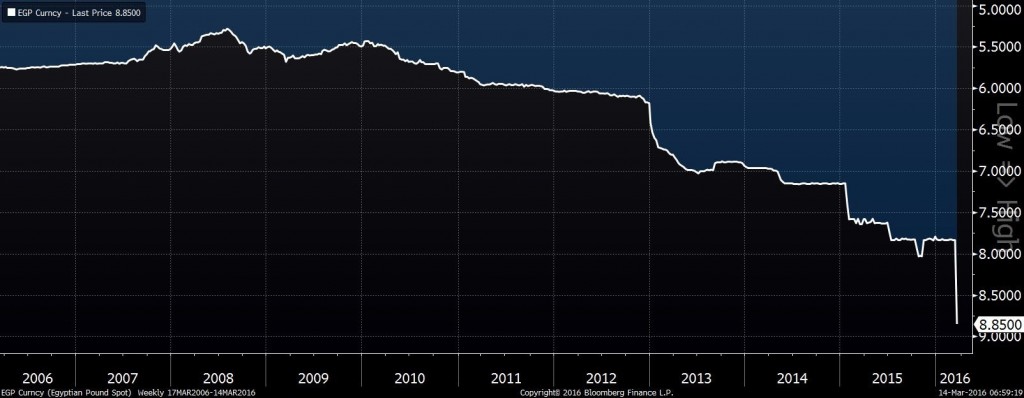Daily Comment (March 14, 2016)
by Bill O’Grady and Kaisa Stucke
[Posted: 9:30 AM EDT] Markets are trending higher leading into a busy week. Here are a few highlights as most of the U.S. shifts to the dreaded Daylight Savings Time:
Three central banks meet this week: The FOMC meets this week. This meeting is one of the four that includes a press conference and an updated dots chart. No change in policy is expected, although the recent lift in equities and the weaker dollar have started to shift the market narrative back to tightening. We expect the following from the meeting, which will conclude tomorrow:
1. No change in rates.
2. One dissent, coming from KC FRB President George.
3. A downward revision in the dots chart but rates still higher than market expectations.
4. A narrative that is reasonably upbeat on the economy.
The BOJ and BOE also meet this week. The former is not expected to make any changes in policy despite the disappointing reaction after the bank introduced its negative interest rate policy (NIRP). It appears that some dissention between the Abe government and the BOJ is brewing. The government wants the central bank to be more aggressive while the BOJ seems worried that NIRP could backfire and policymakers appear somewhat stumped on what to do next. Meanwhile, the BOE isn’t expected to do anything as Britain is in the throes of Brexit, which might require the BOE to aggressively support the economy if the U.K. leaves the EU.
Egypt devalues: Although the move wasn’t a huge surprise, it will lift inflation in Egypt and could add instability to an already volatile region.
This chart shows the EGP (Egyptian pound) per dollar. We have inverted the scale such that a decline in the chart (a higher number) actually indicates a weaker EGP. This is a big drop and may trigger other nations in the region to consider devaluations of their own. At the same time, the move was well anticipated. The black market rate is reportedly around 9.6 so we cannot rule out another devaluation.
China’s economy and financial markets: Although the headline data was disappointing (see below), the actual numbers are probably a bit better than the reports would suggest. Industrial production came in weaker than expected; however, the entire drop in growth was due to a slide in tobacco output, which may be due to adverse weather. Electricity production rose, which is a good proxy for economic growth. Meanwhile, the new head of financial market supervision hinted at equity market support. As we noted last week, China may create a loan/equity swap facility that would allow banks to swap deteriorating debt for equity. This is potentially a good move depending on how the deals are priced. Overall, a better Chinese economy would be bullish for emerging markets and commodities.
Politics: There are crucial primaries in the U.S. tomorrow. Donald Trump is currently expected to win Illinois, Florida and Missouri, but lose to Kasich in Ohio, based on betting data from Predictit. If this is the outcome, it will most likely mean that Trump will have the largest number of delegates at the Cleveland convention but not a majority. Then, we will see if the GOP establishment can maintain control over the political system or not. Over the weekend, violence erupted at Trump rallies and there is concern that this could spread to other candidates as well. Meanwhile, in Germany, Chancellor Merkel’s coalition lost two out of three state elections yesterday. Most concerning, the Alternative for Germany (AfD) made gains in all three states, building its base as a leading opposition party. The AfD is a right-wing, anti-immigration party and has been making gains due to the refugee turmoil.



